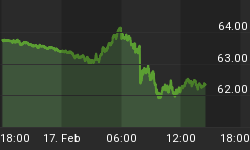The continued existence of the Federal Reserve System is both the greatest threat to national solvency and an insult to the American people.
On February 25, 2011, Federal Reserve Vice Chair Janet L. Yellen explored new depths of dishonor. (For an earlier depth, see: Liquidate the Fed.) At a University of Chicago Business School forum, the life-long academic claimed: "I'll highlight the role of central bank communications in bolstering the effectiveness of unconventional monetary policy." [All Yellen statements are in italics.] The title of Yellen's speech was: "Unconventional Monetary Policy and Central Bank Communications." It was dishonest from beginning to end.
After the preliminaries, Yellen expounded her theme: "In the remainder of my remarks, I will present some evidence regarding the effectiveness of these policy tools..." Among the "unconventional" policy tools mentioned by Yellen were purchases by the Federal Reserve of mortgage-backed securities and "longer-term Treasury securities." The reason to buy longer-term Treasuries was "to depress term premiums and longer-term interest rates."
Chairman Ben S. Bernanke, the leading practitioner of mendacious central-bank communications, explained the Fed's plan to buy long-term Treasury securities in the Washington Post on November 4, 2010. He claimed the purchase of these bonds would drive their prices up; hence, their yields would drop. As a consequence: "[L]ower mortgage rates will make housing more affordable and allow more homeowners to refinance. Lower corporate bond rates will encourage investment." [My bold - FJS]
Bernanke could not have been more wrong. On the day his communication was published, 10-year U.S. Treasury bonds yielded 2.33%. Today, they yield, 3.4% - a rise of 46%. Mortgage rates generally mimic Treasury yields. Over the same period, the 30-year Freddie Mac fixed mortgage rate has risen from 4.10% to 4.95%. House prices are falling again. In January, 2011, median, existing houses sold for $158,000 - the lowest level since April, 2002. Since the housing bubble was so great, the renewed decline is trampling more bystanders. From David Rosenberg, head economist at Gluskin, Sheff, in Toronto, on February 7, 2011: "The [U.S.] labor force has plunged an epic 764,000 in the past two months.... People not counted in the labor force soared 753k in the past two months.... [I]t looks like real weekly earnings contracted in January for the third month in a row."
Vice Chair Yellen went on: "My reading of the evidence, which I will briefly review, is that both unconventional policy tools - the use of forward guidance [that is - her contorted communication of unconventional policy to the public] and the purchases of longer-term securities - have proven effective in easing financial conditions."
With no more discomposure than Colonel Khaddafy, the academic stated: Last August [2010], the FOMC announced that it would begin reinvesting principal payments on agency MBS and agency debt into longer-term Treasury securities.... Consequently, when the Committee announced in early November that it intended to purchase an additional $600 billion in longer-term Treasury securities, that decision was largely anticipated by financial market participants, and it occasioned only minimal market response."
Certainly, the announcement in August put money in motion, but "only minimal market response" pretends interest rates have been stable since. Her "reading [that] the purchases of longer-term securities - have proven effective in easing financial conditions," is as great a distortion as the paranoid claims by the bedraggled Libyan dictator.
This is, in fact, the position in which Yellen and the other Fed apologists now operate. As in the last furlongs of the Soviet Empire, the Federal Reserve is a paranoid body that finds every action fails, and its only hope to retain legitimacy is to establish untruths and hope the prestige of the office smothers opposition.
Hear one-hour interview of Frederick J. Sheehan by Dr. Stan Monteith from Radio Liberty - February 17, 2011
Frederick Sheehan writes a blog at www.aucontrarian.com

















